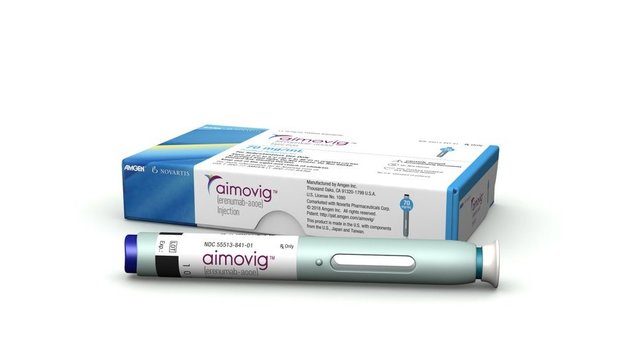
NICE has issued a draft rejection of Novartis’ Aimovig (erenumab), saying the novel migraine prevention treatment is not cost-effective.
England’s cost effectiveness watchdog says the company has supplied insufficient evidence to demonstrate that it is more effective than botulinum toxin type A, and that the data presented doesn’t fully reflect patients seen in clinical practice in the NHS.
The draft guidance is a setback for Novartis and Aimovig, the first-to-market of a new class of CGRP agonist drugs which promise to help prevent debilitating migraines in millions of patients worldwide. Aimovig is forecast to hit peak global sales in excess of $1bn – but NICE wants to see more evidence or a lower price before it recommends its use on the NHS.
Aimovig has a list price of around £5,000 per year, although Novartis has offered NICE a confidential discount.
NICE says Novartis has failed to supply data on relevant comparators and outcomes, such as how Aimovig compares to Allergan’s Botox, which it approved for migraine prevention in 2016. Botox is normally offered to patients when at least three oral preventative treatments have been tried for those with chronic migraine.
Novartis is aiming for the same use, but because of this “substantial uncertainty”, NICE says the cost effectiveness estimates are higher than what it usually considers to be acceptable, despite it recognising the treatment’s clinical effectiveness.
Meindert Boysen, director of the Centre for Health Technology Evaluation at NICE, said: “Erenumab is a promising new preventive treatment for migraine that has been shown to be clinically effective compared with best supportive care. However, there was not enough evidence to suggest that it is more effective than botulinum toxin type A for people with chronic migraine, which NICE already recommends.
“And for both the chronic and episodic migraine populations there was no evidence to show that erenumab is effective in the long-term in people for whom three previous preventive treatments had failed.”
The treatment gained EU approval in June last year based on Novartis’ phase 3 STRIVE study, which showed that Aimovig reduced the number of migraine days per month by one to three.
It also comes with the added benefit that it’s self-administrative, unlike botox, which not only has to be administered by a healthcare professional but it has to be injected 31 times per treatment.
Despite this, a report by ICER, US pricing watchdog, says Aimovig would only be cost-effective if used after Botox as a last-line treatment option.
Responding to the decision, Haseeb Ahmad, Country President of Novartis UK and Managing Director (UK & Ireland) of Novartis Pharmaceuticals, said: “We’re disappointed by this initial decision from NICE to not recommend Aimovig for routine use on the NHS, yet welcome the opportunity to further discuss our submission.

Haseeb Ahmad, Country President, Novartis UK
“If this decision remains unchanged patients will be denied access to the first licensed treatment specifically designed to prevent migraine in adults.”
Ahmad confirmed that the company would continue to work with NICE to secure access for those with chronic migraines.
Ahmad adds: “NICE does not consider impact of diseases on broader society when evaluating the cost-effectiveness of medicines. We believe this fails to capture the true value of medicines like Aimovig. As migraine predominantly affects people of working age, it costs the UK economy £8.8 billion per year in lost productivity alone.”
Novartis has a number of competitors in the CGRP class hot on its heels: Lilly’s Emgality (galcanezumab) gained EU approval in November, and is now entering the NICE appraisal process.




